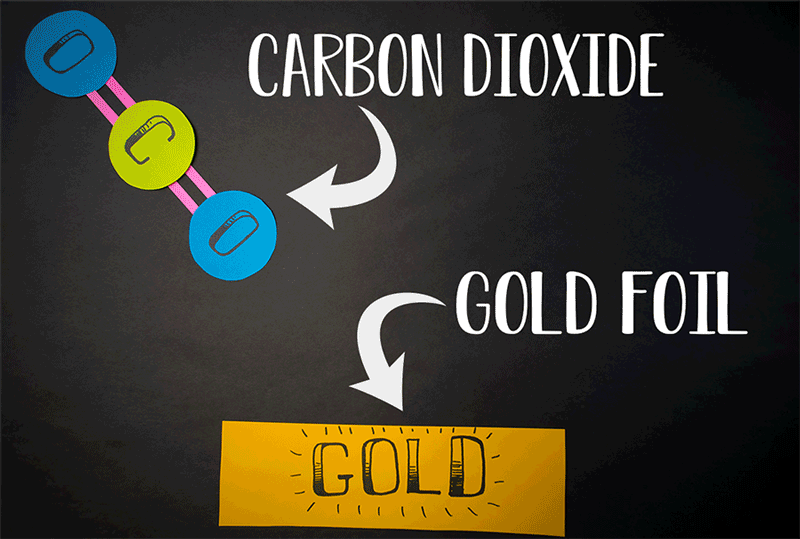|
Story
#1: This is an exciting time at Integrity Research Institute. Not
only have we finished editing the long-awaited “Faster Than
Light” book by aerospace engineer David Froning, improved the EM
Pulser and EM PulsePad to be rechargeable without battery
removal, and received a written endorsement for our Spiral
Magnetic Motor development from an electric motor company, but
this month the 32-page review article on an amazing equation for
climate change has been published by a major peer-reviewed
journal. The last achievement took some perseverance and it was
well worth the effort since it is an open access journal, so
everyone can download a full color copy in
PDF . The article was published this year to honor Dr.
Jim Hansen from NASA who in 1988 was the only one to accurately
publish a projection of the 1°C temperature rise for 2019 (his
graph is included in my paper)! Why he chose 2019 for the endpoint
of his prediction is a mystery but we are glad that he did. The
full article is intended for students, skeptics, and the general
public who may know little or nothing about the changing climate.
Every term is defined and explained, with a steady progression
through the latest carbon emissions, population growth, a CO2
experiment with Alka-Selzer in soda bottles, the renewable
solutions proposed by experts (see Stanford’s below) and the
amazingly predictive Hansen Graph. Make copies and share with everyone
who will be still around in 2040, 2060, 2080, and 2100, each of
which will be an entirely different world than it is today.
Story #2
offers a nice short tutorial on negative energy, which is the
energy of the quantum vacuum of space and also gravity.
Theoretical physicist Grumiller finds that “borrowing” negative
energy, say from the Casimir force, is possible in order to do
work. A related article from Nature also points out the same type
of discovery with high energy X-ray emission produced, with an
extra boost from the vacuum: “Light emission based
on nanophotonic vacuum forces” .This is a key to our
future, even of space travel, and also the name of one of my
books: Zero Point Energy:
The Fuel of the Future which predicted this capability
of the vacuum over a decade ago.
Our
Story #3 documents a true breakthrough in nuclear fusion. Yes,
real nuclear fusion. To quote from the article from Physics
World, a publication of the Institute of Physics: “The Phoenix
system https://phoenixwi.com/
works by accelerating positively-charged deuterium ions into a
target of tritium gas to induce a fusion reaction. This reaction
results in the production of high-energy neutrons and helium.
These neutrons then pass into a tank and strike their target: low-enriched
uranium (LEU) dissolved in an aqueous solution. This causes the
uranium nuclei to split and create multiple elements, including
Mo-99 and other useful isotopes.” When tritium is used with
deuterium in an attempted (D-T) nuclear fusion reaction, it is
well know that the energy yield is much higher than D-D fusion.
However, this appears to be the first recorded successful high
yield D-T fusion reaction yet achieved. It also has a useful
purpose and domestic medical isotope byproduct https://shinemed.com/,
which is also a first. The former CEO of the Phoenix system which
supplied the high-energy neutron generator, says “The
world-record proves the accelerator technology is suitable to
produce medical isotopes at the scale required to support a
robust business case,” says Piefer. “It is also a stepping stone
toward advancing fusion for other, more ambitious applications,
including the recycling of nuclear waste and ultimately the
creation of cleaner, safer and more abundant energy.”
Story #4
gives us a lot of hope for settling Mars and also converting our
excess CO2 into oxygen. Caltech physicists have found that by
electrically charging CO2, found in the Mars atmosphere, and
crashing the molecules into oppositely charged gold foil, the CO2
gains enough energy upon impact to turn the two O2 atoms toward
each other and thereby separate from the carbon atom, thus
producing molecular oxygen. No real chemistry is involved, only classical
Newtonian physics which an educational CO2 -> O2 GIF on the site
graphically shows.
Story #5
is also a first, being a breakthrough in longevity research. UCLA
offers hope for those wishing to turn their biological clock
backwards and live a few years longer. A growth hormone and
diabetes drugs appear to reverse a person’s biological age by
about 2.5 years and was verified by genome analysis. Without a
control, the results are considered preliminary but still seem to
be a significant achievement in proving such a reversal is even
possible. The related article is also very interesting in the
same science.
|
|
|
|
If you
enjoy this service, take
individual action by clicking on the donate button. We
are a 501 (C)3 Non Profit Institute and your donations are fully
deductible to the maximum allowed by law.
|
|
1) IRI
Press Release: New Article Published in Journal of Environment
and Climate Change
|
|
PRESS RELEASE: "Predictive
Connection for 2100 between Atmospheric Carbon, Global Warming
and Ocean Height Based on Climate History"
|
This
32-page review, published October 11, 2019 in the open access, International
Journal of Environment and Climate Change, found
that observationally informed projections of climate science
underlying climate change offer a different outlook for the most
likely outcome for 2100 that mirrors Hansen’s publications from
1988 and 2006. Being a few decades ahead of every other
climatologist made Hansen’s work the leader which only recently
has been corroborated by other leading climatologists. This
review confidently states that five to six-degree (5-6°C)
increase is the “most accurate” prediction for 2100 with regard
to present trends, climate history and models. The most
significant result from the review is a quantitative, linear
global temperature link to carbon dioxide levels, which has a
short temporal feedback loop, as well as long-term quantitative
sea level rise expectation, in equation form.
Dr. Tom
Valone from Integrity Research Institute examined an obscure
graph and numerical table from “The
Messenger” in MIT’s Technology Review over
the past 13 year period. Comparing author and esteemed
climatologist Dr. Jim Hansen’s graph with every available
predictive report and publication during that time, he developed
a simple climate equation based on “Hansen’s Graph” from 2006 to
produce a predictive climate forecast, which also has a rare and
highly desired quantitative aspect for reliability.
Short
Two-Page Summary: https://www.integrityresearchinstitute.org/ClimateNewsBrief2019.pdf
|
|
2) It's Possible to Borrow Energy from Empty Space
|
|
|
|
The
theory of general relativity makes us assume that "the energy
is greater than zero, at all times and everywhere in the
Universe," said Professor Daniel Grumiller from the
Institute for Theoretical Physics at the TU Wien
(Vienna). If we follow the theory of general relativity,
this would mean that negative energy means negative mass.
Positive masses attract each other, and if a negative mass
arises, gravity will become a repulsive force. Quantum
theory, however, allows for negative energy.
|
|
3) Record Breaking Fusion Reaction for Medical
Technologies
|
|
|
|
Nuclear
technology companies Phoenix and SHINE Medical Technologies have achieved a new world
record for a nuclear fusion reaction in a steady-state system,
the strongest of its kind ever produced on Earth. The reaction
yielded 46 trillion (4.6×10^13) neutrons per second, eclipsing the previous
record by nearly 25% and setting a new standard for neutron
generator technology.
This
breakthrough could prove great news for the field of nuclear
medicine. SHINE was founded in 2010 to create a safe, cost-effective
and environmentally-friendly technology to produce medical
isotopes. And it’s using Phoenix’s high-flux neutron generators
to achieve this.
In
particular, the companies aim to resolve the ongoing global
supply issues of molybdenum-99 (Mo-99), a radioisotope that
decays into the diagnostic imaging agent technetium-99m (Tc-99m).
The most prevalent nuclear medicine agent, Tc-99m is employed in
tens of millions of medical diagnostic procedures each year,
primarily in stress tests to diagnose heart disease or to stage
cancer.
|
|
|
4) Scientists Cook A New Way to Make Air Breathable
in Mars
|
|
|
|
Mars is a long way from Earth, so being able to
create breathable air on-site would save money and effort in
having to haul oxygen all the way from our own planet.
A research
team discovered this new oxygen-generating reaction by
studying comets. Most of these small icy worlds
originate in a distant area of the solar system known as the Oort
Cloud, far beyond the orbit of Neptune. If a comet's orbit brings
it close to the sun, heat begins pushing cometary ice off into
space. This reaction produces long tails that can stretch for
thousands of miles.
|
|
5) Biological Age Can Be Reversed
|
|
|
|
In a small trial, drugs seemed to rejuvenate the
body’s ‘epigenetic clock’, which tracks a person’s biological age.
For one
year, nine healthy volunteers took a cocktail of three common drugs
— growth hormone and two diabetes medications — and on average shed
2.5 years of their biological ages, measured by analysing marks on
a person’s genomes. The participants’ immune systems also showed
signs of rejuvenation.
The
results were a surprise even to the trial organizers — but
researchers caution that the findings are preliminary because the
trial was small and did not include a control arm.“I’d expected to
see slowing down of the clock, but not a reversal,” says geneticist
Steve Horvath at the University of California, Los Angeles, who
conducted the epigenetic analysis. “That felt kind of futuristic.”
The findings were published on 5 September in Aging Cell1.
|
|







